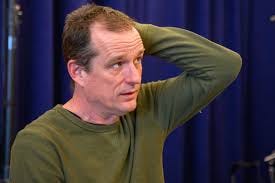It’s 1994, and Sean Allison is twenty-one. He’s flunked out of two colleges, and he’s living with his parents in Westchester. His dad worked in TV news—reporting from wars and later producing Dan Rather’s prime time show. Sean gets a job at the other end of the food chain, as a videographer for tabloid stories that …
Keep reading with a 7-day free trial
Subscribe to Everything is Personal to keep reading this post and get 7 days of free access to the full post archives.




